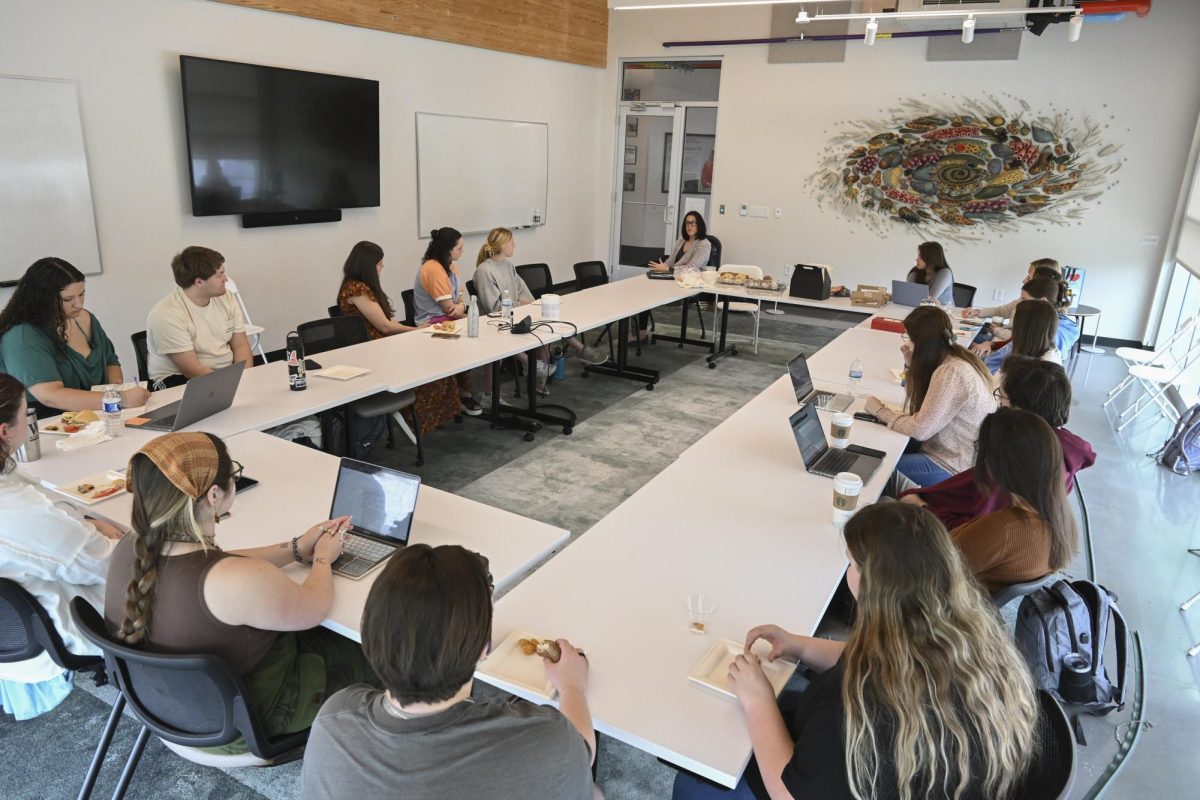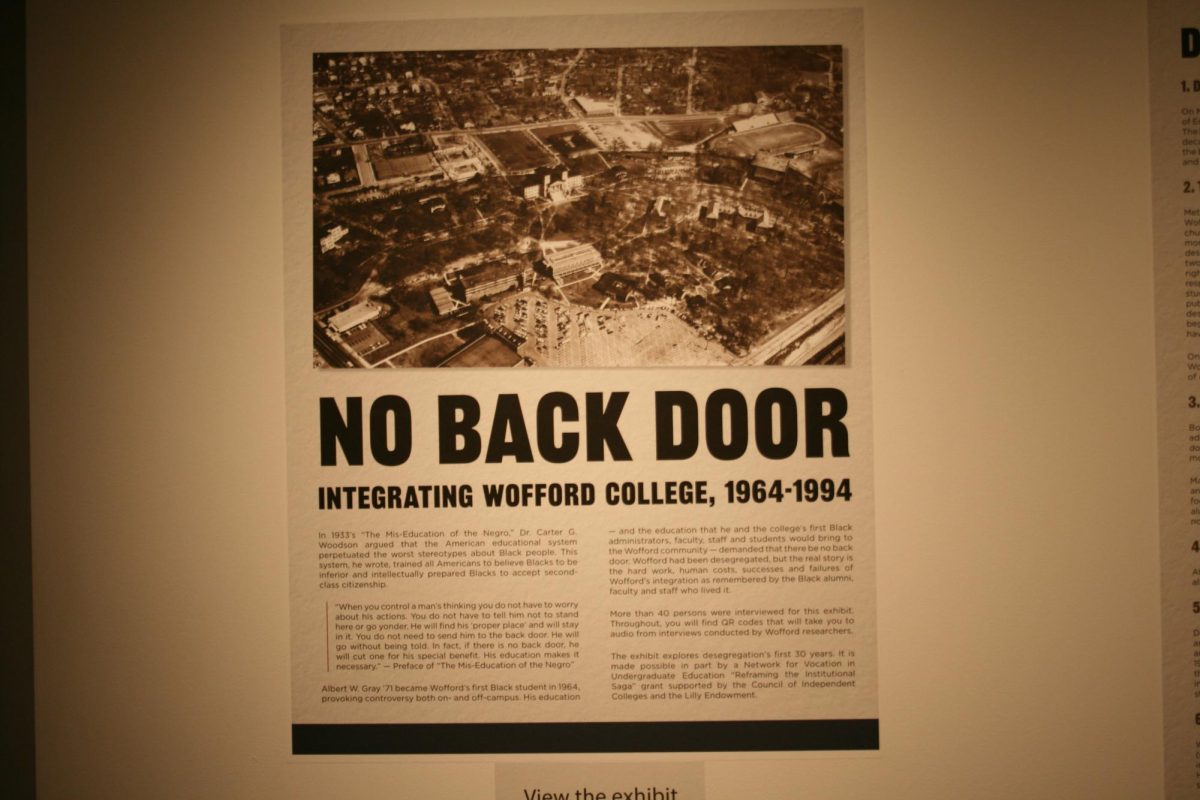September was marked by a string of political affairs that may have raised concerns about the integrity of the American political system. Amidst these current events, Lee Hawkins, a 2022 Pulitzer Prize finalist and former Wall Street Journal columnist, visited Wofford on Sept. 25 to discuss his investigative memoir, “I am Nobody’s Slave.” In this critically acclaimed memoir, Hawkins examines 400 years of his Black American family history of slavery, Jim Crow Apartheid and intergenerational trauma.
Invited by Dr. Dwain Pruitt, chief equity officer and vice president for community initiatives, Hawkins begins his talk by explaining the discoveries he made about his family history.
“[Jim Crow] was not Apartheid to me when I started the process. I thought that Jim Crow was segregation. I looked at Jim Crow with what I saw as a kid growing up in Minnesota, as a time where blacks and whites had separate water fountains. I thought the real injustice had to do with the separation of the races,” Hawkins said.
Recognizing the extent of racial violence that was a part of Jim Crow, Hawkins acknowledges his father as a Jim Crow survivor. A Jim Crow survivor is any black person, over the age of 60, born in a state where there were Jim Crow laws.
Hawkins expressed that these people were the ones who led the movement to push America to reach for its fullest potential during critical times, such as the Civil Rights Movement in 1964.
“Understanding that the brutal truth of this country was that for all the 60 years of our existence, white supremacy has been the law,” Hawkins said. “The system of 400 years for all the 60 years of our country’s existence, white people have been supreme, and that was the law. That’s not a political statement. That is a fact.”
His inspiration for writing this memoir stemmed from his curiosity about his family’s past in America, particularly because his father avoided speaking about his time in Alabama. Through research, Hawkins learned that he is a descendent of revolutionary war soldiers and civil war soldiers.
“[My father] was not born equal to a white person under the Constitution. I’m the first. I’m part of the first generation in my family to be born equal to a white person under the Constitution, but my family has been here since the 1600s,” Hawkins said.
Hawkins addresses concerns with the increased violence that is occurring within American society. As political violence, gun violence, and violations of freedom of speech continue to happen, desensitization to these offences creates space for separation, for misunderstandings, and for injustice.
Hawkins urges current generations to condemn all acts of violence and protect our humanity. Current generations have to break the cycle of stooping to violence to handle conflicts, but breaking this cycle means to tell the truth.
“We can confront history honestly and still celebrate the peaceful victories that brought us closer to a more perfect union that is not the glorification of harm that is the legacy worth passing on,” Hawkins said.
Hawkins concludes his talk by sharing that he wrote this book as a gift to current generations so that they are aware of the ways trauma of the previous generation can be repeated if not studied and understood properly.
Last year, Wofford commemorated its 60th anniversary of desegregation on Sept. 7, a reminder of the progress that this institution has made and the work that remains. This milestone served as tribute to all the individuals who helped to make this progress possible.
Wofford would not be the institution it is today without the African Americans that placed the first bricks of the Main Building, constructing a space that now houses classrooms for history, religion and English.
Wofford would not be what it is today without the achievements of Doug Jones ‘69 and Janice B. Means ‘73, who broke racial barriers as the college’s first African American graduates.
As this campus continues to grow into a more diversified community, it is imperative to acknowledge the history that lies within the walls of Wofford as it contributes to a future defined by unity and diversity.

































